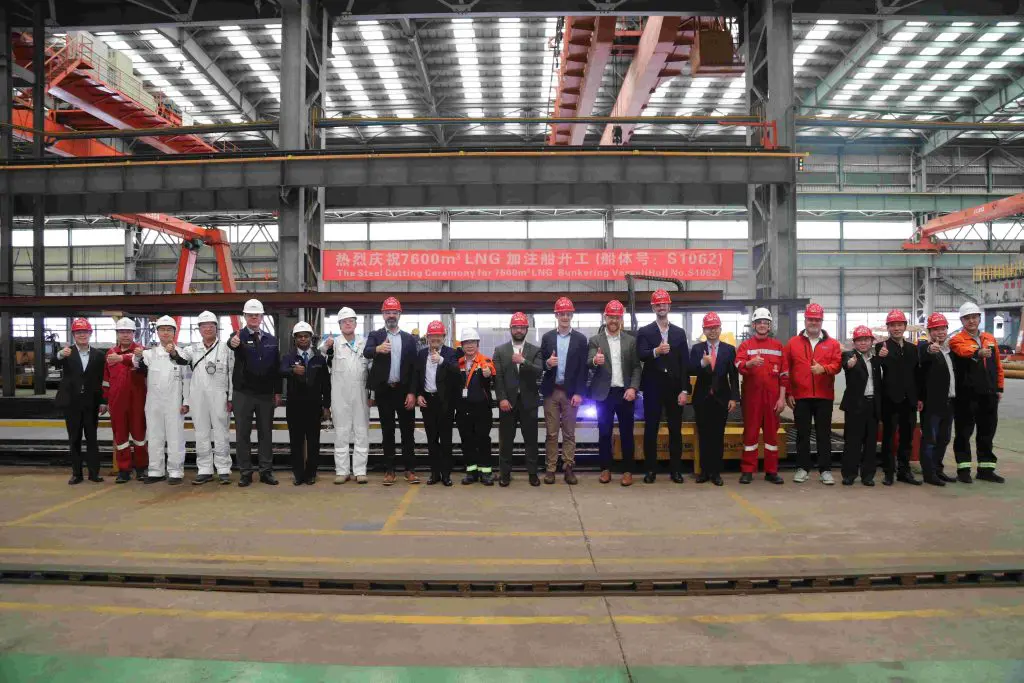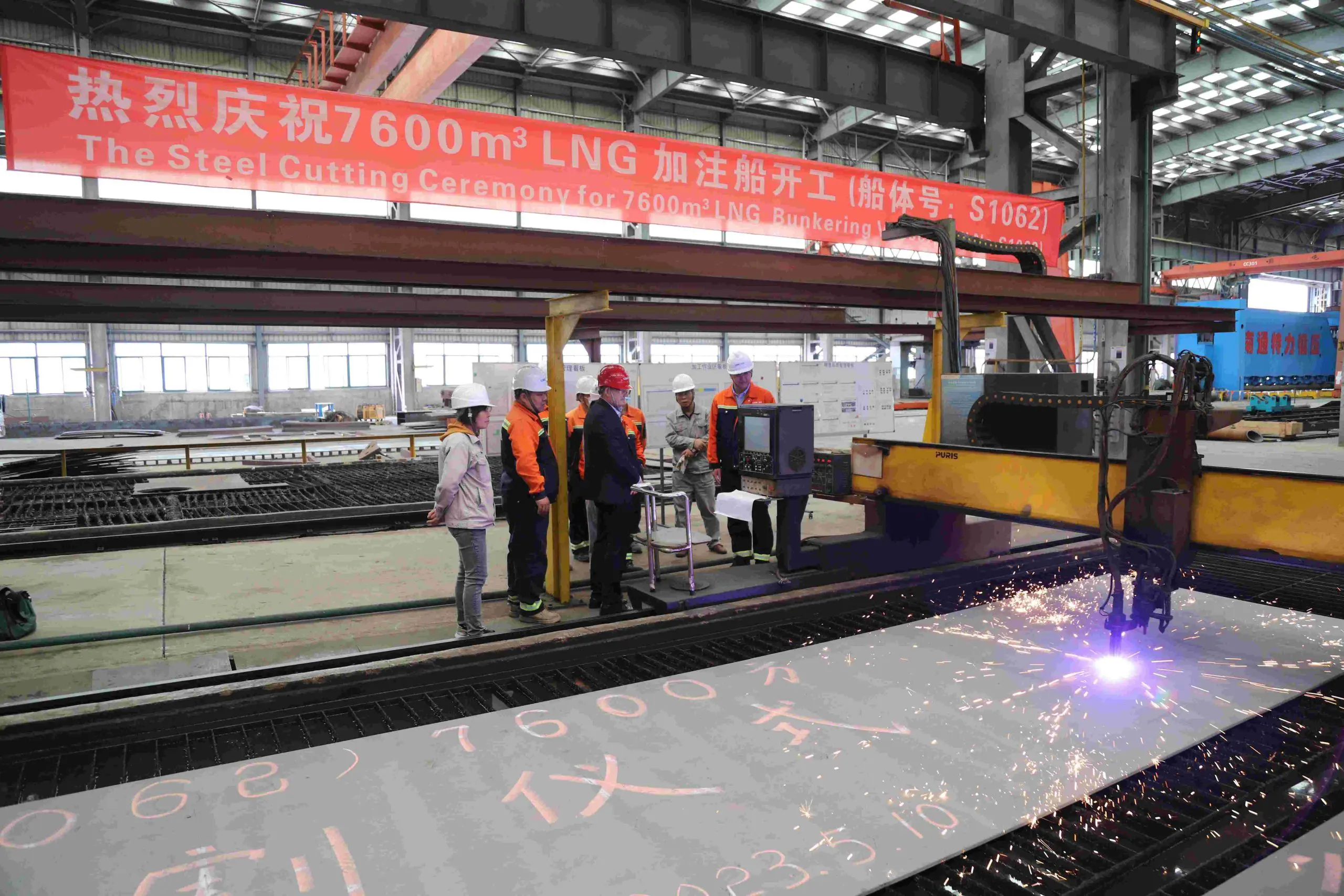China’s Nantong CIMC Sinopacific Offshore & Engineering has officially started building the second 7,600-cbm LNG bunkering vessel for Canada’s Seaspan ULC.
To mark the construction start, CIMC SOE held a steel-cutting ceremony for the LNG bunkering vessel with a working name S1062 on May 10, it said in a statement.
The vessel will have 112.8 meters in length, 18.6 meters in width, 5 meters in draft, and a design speed of 13 knots.
Also, the Canadian-flagged ship will be classed by BV and will feature the latest ship technology to further reduce greenhouse gas emissions, CIMC COE said.
Last year, CIMC SOE won a contract to build two 7,600-cbm LNG bunkering vessels for Seaspan Marine Transportation and this is the second vessel from this contract.
Besides two firm LNG bunkering ships, the deal also included an option for a third vessel and Seaspan exercised its option for that vessel as well.
Norway’s Hoglund said last year it won a contract last year to deliver integrated automation system (IAS) for three Seaspan’s newbuild LNG bunkering vessels.
Also, Bonn-based TGE Marine Gas Engineering will supply the cargo handling and fuel gas system for the three vessels.
The vessels will each feature two IMO type C cylindrical tanks and an LNG sub-cooling system to facilitate cargo conditioning during transit and anchorage.

Delivery in 2024
According to data by VesselsValue, CIMC SOE will deliver the first two ships in 2024 and the third in 2025.
Seaspan ULC is a group of Canadian companies that are primarily involved in coastal marine, transportation, bunker fueling, ship repair, and shipbuilding services on the West Coast of North America.
Designed by Vard Marine, the bunkering vessels will provide ship-to-ship LNG transfer as well as coastal/short sea shipping operations, Seaspan previously said.
Besides Vard, Seaspan partnered with the Port of Vancouver, Canada’s largest port, and FortisBC, the owner of the Tilbury LNG facility in British Columbia.
In addition to supplying LNG fuel for the group’s ferries, the vessels will supply LNG fuel for cruise ships, tankers, and containerships visiting the West Coast of North America.

